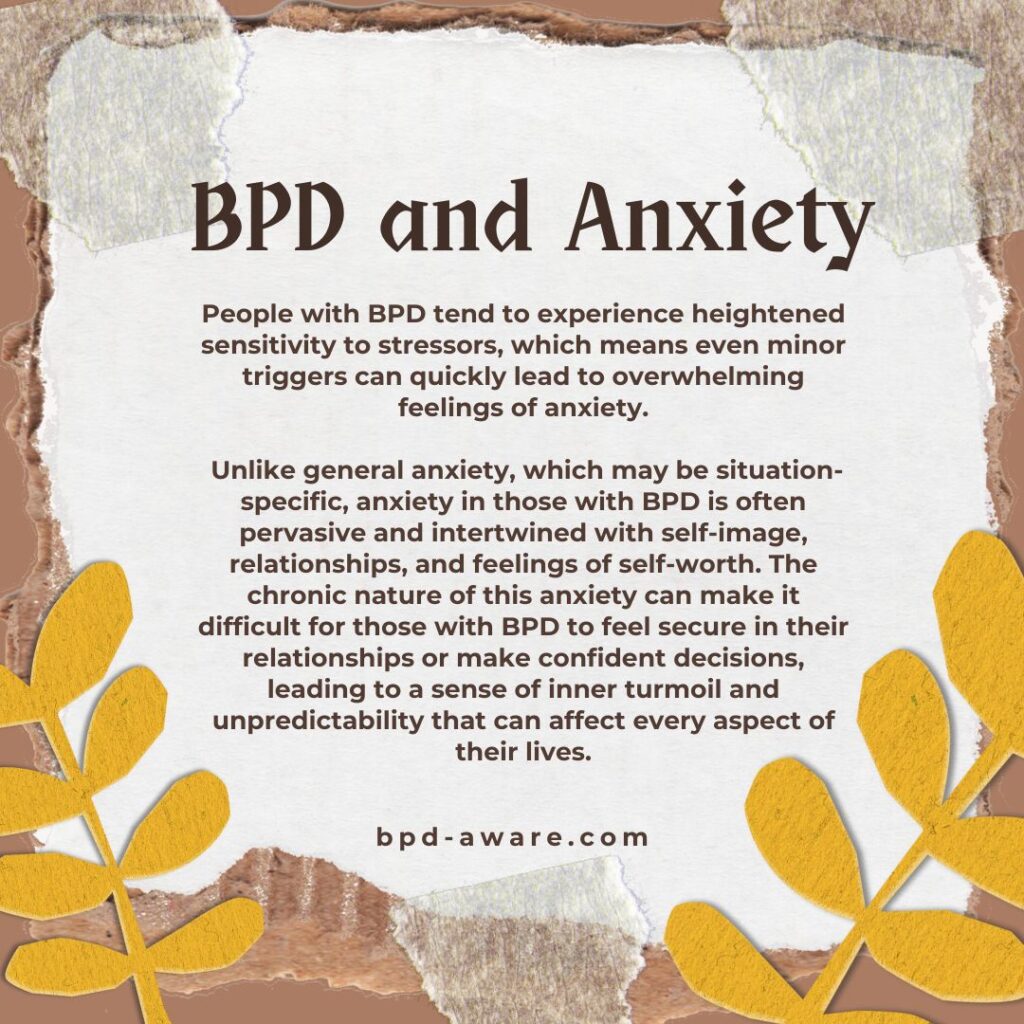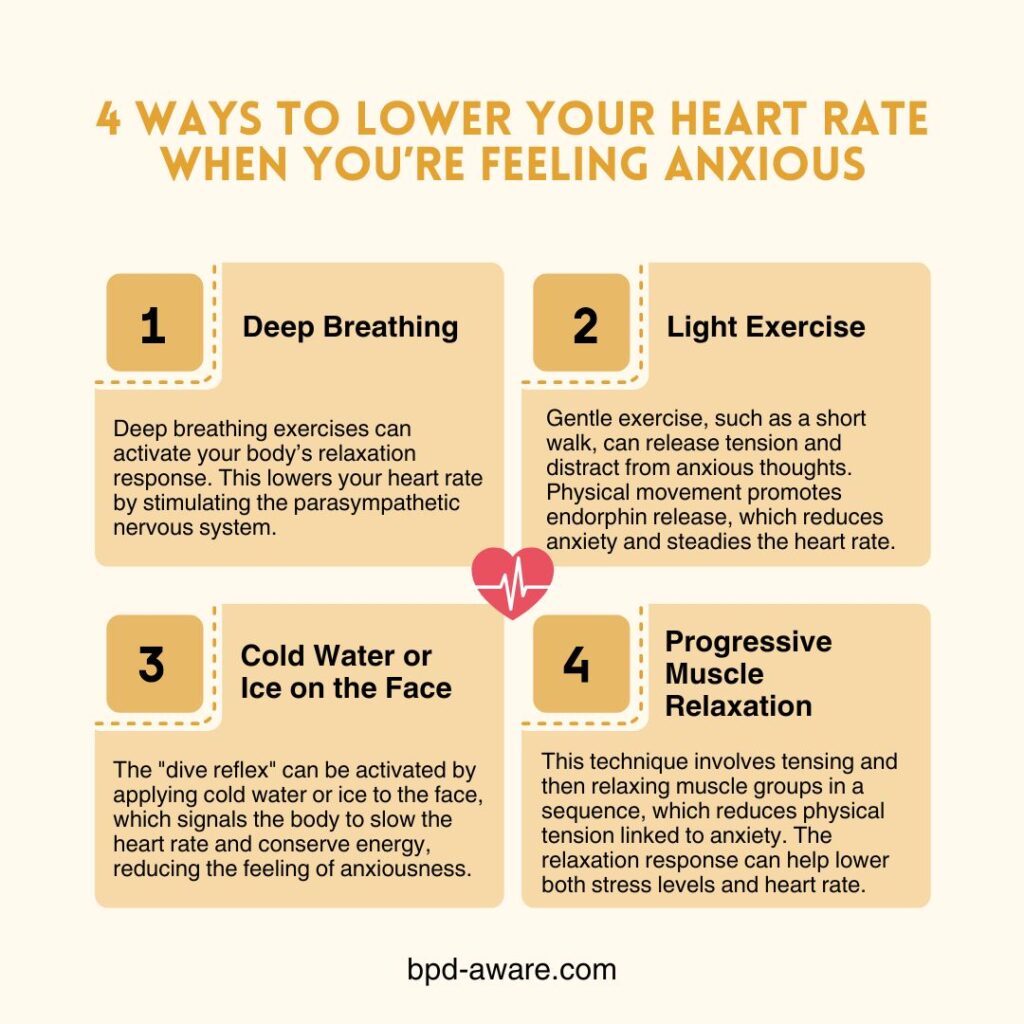Living with borderline personality disorder (BPD) can feel like a never-ending attack of symptoms on top of symptoms. Not only do you have the symptoms of BPD to contend with, but each symptom often has several symptoms of its own. For example, many people with BPD struggle with anxiety but anxiety comes with many issues of its own to contend with. One such symptom of anxiety is a rapid heartbeat.
A rapid heartbeat can occur during an anxiety or panic attack, but it can also occur just as a normal part of an anxious episode.
A typical normal heart rate is usually between 60 to 100 beats per minute. However, anxiety can cause your heart rate to rocket way higher, as high as 200 beats per minute. This can feel as if your heart will beat out of your chest or explode at any moment. All of which adds to the anxiety you’re feeling.
As someone who’s struggled with anxiety, as well as BPD, I have a history of spikes in my heart rate. I’m a physically fit male in my late thirties and, just last month, I ran a marathon. As a result, my heart is fitter than average. My resting heart rate often registers in the low 50s. Yet, even now, I can have anxious moments where my heart rate goes as high as 160 beats per minute despite the fact I’m not doing any physical activity.
I once had to visit the Emergency Room because I was worried I was having a heart attack! I was out on a walk when I felt a severe pain in my chest and realized my heart was beating way faster than it should be for what was a gentle walk. It felt like someone had their hand in my chest and was squeezing my heart. I got to the hospital as quickly as I could. Thankfully, it proved to be a false alarm. But ever since then I’ve taken the physical effects of anxiety a lot more seriously and learned how to better control my heart rate in times of stress.
If you also suffer from a rapid heart rate due to BPD-related anxiety or anxiety in general, here are some ways you can reduce your heart rate and reduce those anxious feelings at the same time.

Assess Your Mental State
Is there anything happening around you that could be contributing to your anxiety? Perhaps you’re around someone who makes you feel uncomfortable or you’re in a situation that you don’t feel comfortable in. If you’re in a situation that’s making your heart pound out of your chest, then it’s a good idea to remove yourself from the situation as soon as possible. You might find your heart rate returns to normal quite quickly once you feel more comfortable in your surroundings.
Assess Your Physical State
How are you feeling physically? Thirst or hunger can add to feelings of anxiety and cause a rapid heartbeat. Low blood sugar can release stress hormones which cause anxiety, while a rapid heartbeat can also be a sign of dehydration. A healthy snack such as fruit and a glass of water can help your heart rate return to normal.
Gentle Exercise
Gentle exercise, such as a walk in the park or some light stretching, can help to reduce the production of cortisol (commonly known as the stress hormone) which in turn should help to reduce your heart rate. A walk in the park can be particularly effective as not only will you be getting some light exercise, but you’ll also be getting out into nature, which also has a positive effect on anxiety.
Avoid Alcohol, Caffeine and Other Drugs
Alcohol, caffeine, and most other drugs can cause spikes in your heart rate due to imbalances between the sympathetic and parasympathetic divisions of the nervous system. Caffeine is certainly linked to increased feelings of anxiety and medical professionals recommend reducing caffeine intake as much as possible if you regularly struggle with anxiety.
While it might seem obvious to avoid alcohol, caffeine, and drugs such as cocaine when you’re suffering from anxiety, you might not be aware that cannabis can also cause your heart to race. Cannabis is commonly used as a relaxant but it can cause spikes in blood pressure and heart rate. So think twice before you reach for that edible when you feel stressed.
Try Herbal Tea Instead
Instead of alcohol or caffeine, try reaching for a herbal tea such as chamomile, peppermint, hibiscus, or lavender. Chamomile in particular can help to lower your heart rate as it is a mild tranquilizer. Similarly, hibiscus tea has been found to lower blood pressure which can in turn lower your heart rate and reduce feelings of anxiety.
Deep Breathing Exercises
When you feel anxious it can often have a negative effect on your breathing. Anxiety causes you to take shallow breaths, creating lower oxygen levels in your blood which can make your heart work harder. Focus on your breathing and try exercises like box breathing where you inhale for four seconds, hold for four seconds, and then exhale for four seconds. This will calm your breathing down, better oxygenate your blood, and reduce your heart rate.
Progressive Muscle Relaxation
Progressive muscle relaxation (PMR) is a technique in which you focus on individual parts of your body, tensing them for five to ten seconds before relaxing them and moving on to another body part. This takes your mind away from your anxiety and racing heart and reduces any tension you might feel around your body. Most people start with their face and move down but you can start anywhere you like.
Cold Water Exposure
Splashing cold water or applying ice to your face activates the “dive reflex” which signals your body to slow down your heart rate and prepare to conserve energy. It’s a quick, simple way to lower your heart rate and reduce anxious feelings. This is a part of the TIPP skill which is taught within DBT, the most popular therapy for BPD.
Listening to Slow Music
Did you know that when you listen to music, your heart rate syncs up with the beat of the song? That’s why fast-paced music is great for listening to when you’re in the gym or want to hype yourself up. Conversely, listening to slow music is a great way to lower your heart rate and soothe your anxiety. Look for music that’s around 60-70 beats per minute. Spotify has a feature that allows you to search for playlists by their tempo, which is a great way to find music that will calm your heart down.
Using a Weighted Blanket
Touch therapy is proven to help decrease heart rate by activating the parasympathetic nervous system. If you don’t have a partner or friend who can hold you, the next best option is a weighted blanket. You can get one for around $40. One thing you’ll want to consider though is how weighted you want it to be. They range in weight from 5lbs to 30lbs, some people prefer them heavier while others prefer them lighter. It’s a good idea to start on the lighter side or to get one where the weight is adjustable, as too much weight can cause more anxiety for some people.

Final Thoughts
People with BPD are extremely sensitive to stressors which lead to heightened states of anxiety. This, in turn, can lead to a rapid heartbeat, which can be an extremely scary experience. If this is something you suffer from regularly, it’s worth getting checked out by your doctor to make sure there’s nothing more serious at play.
However, if the cause is anxiety then several techniques can help you quickly and safely reduce your heart rate back down to a more normal range in the short term.
In the long term, you should consider potential treatment options for your anxiety. Medication and therapy are both effective ways of reducing anxiety and all of the unpleasant symptoms that come with it.
Sources, Resources, and Further Reading
- Techniques to Reduce Your Heart Rate During Anxiety: https://www.selfspaceseattle.com/blog/2024/1/19/techniques-to-reduce-your-heart-rate-during-anxiety
- 5 effective ways to slow your heart rate when anxious: https://happiful.com/5-effective-ways-to-slow-your-heart-rate-when-anxious
- The comorbidity between Borderline Personality Disorder (BPD) and Generalized Anxiety Disorder (GAD): https://www.sciencedirect.com/science/article/abs/pii/S0022395623003072
- Anxiety and Borderline Personality Disorder: https://www.calmclinic.com/anxiety/causes/borderline-personality-disorder
















